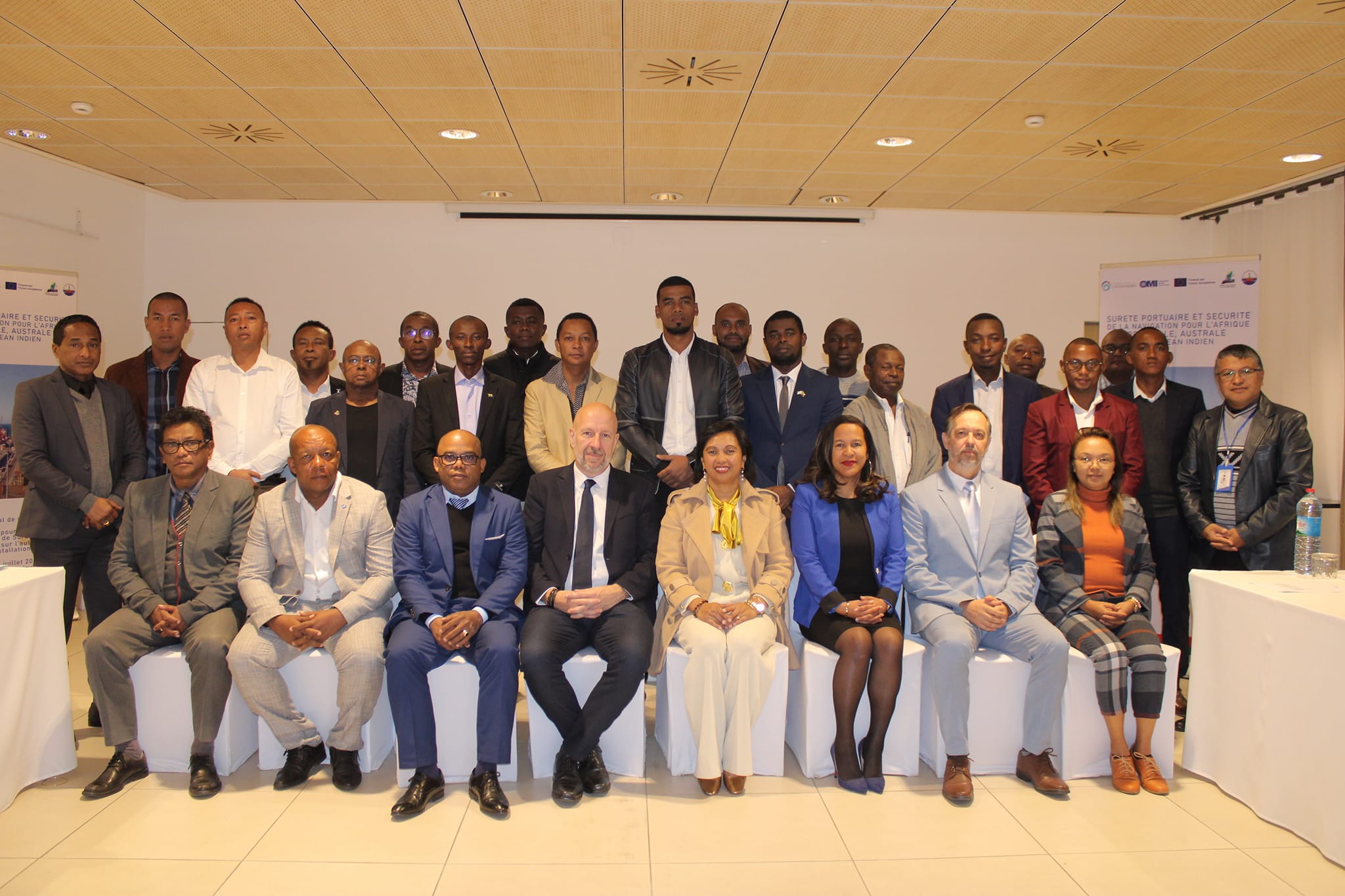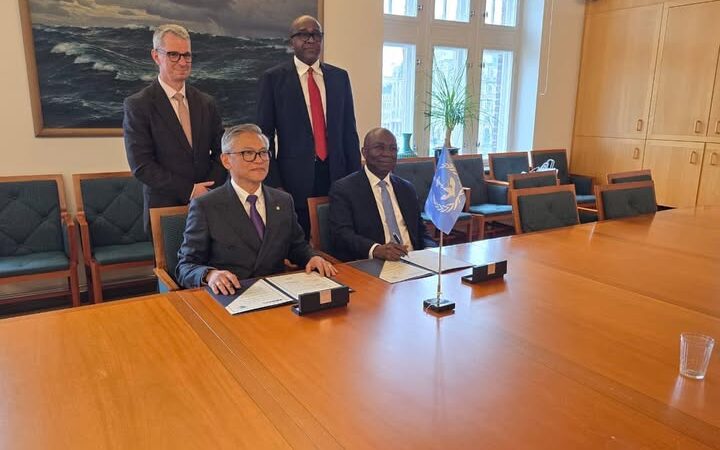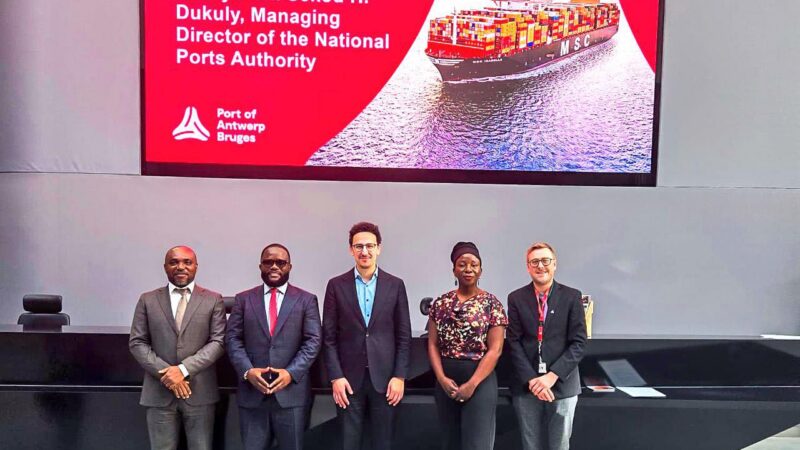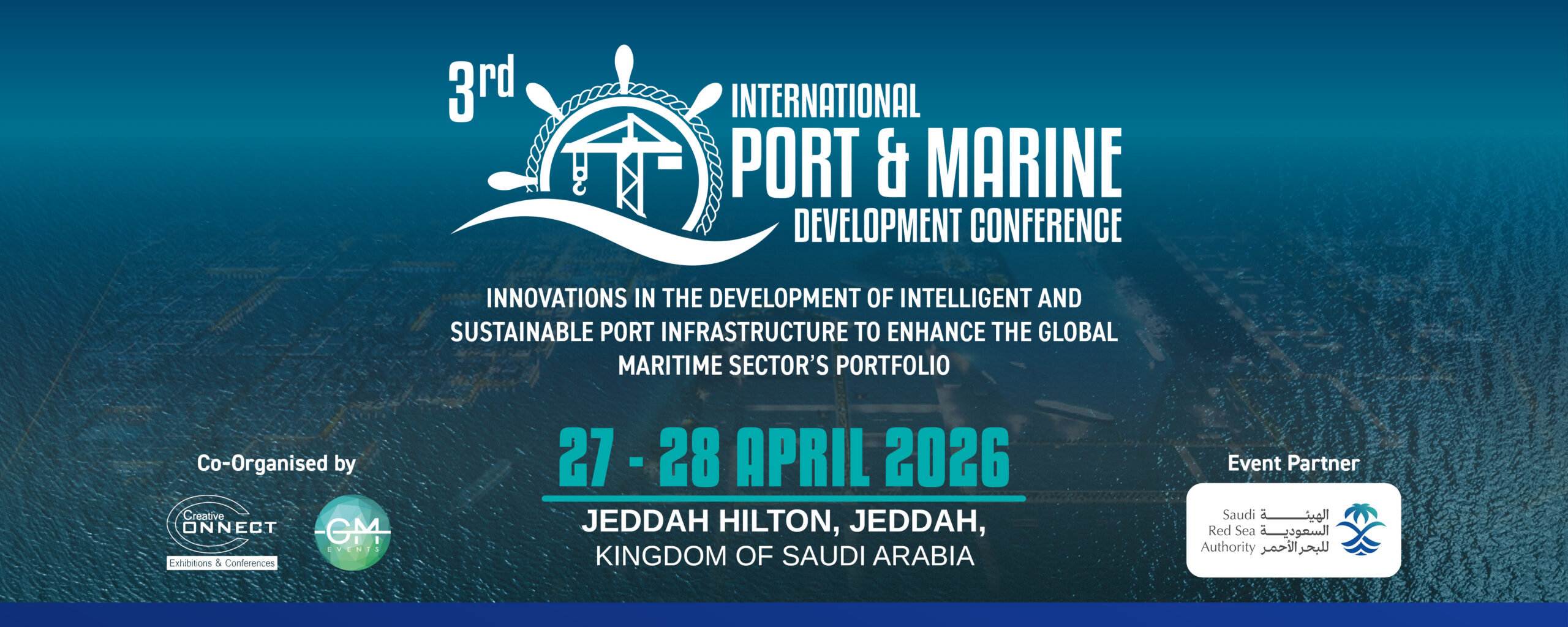Madagascar hosts regional workshop on Port Facility Self-Evaluation and Audit
From 15 to 19 July 2024, Madagascar hosted the Regional Workshop on Port Facility Self-Assessment and Audit. Sixteen (16) national officials from the Agence Portuaire Maritime et Fluviale (APMF) and the ports of Antsiranana, Toamasina, Ehoala, Toliara, Mahajanga and Nosy-Be, which are open to international traffic, as well as eight officials from the Union of the Comoros took part in this workshop.
This was the fifteenth activity organised in Madagascar as part of the Port Security and Navigation Safety Programme (PSP). The PSP is a project of the International Maritime Organisation (IMO), funded by the European Union and implemented by the Indian Ocean Commission (IOC). The programme aims to build the capacity of the responsible authorities, ensure the availability of the relevant legislation and compliance framework, and implement a regional information sharing mechanism and a cargo and passenger data exchange system within the Southern and Eastern Africa and Indian Ocean (ESA-IO) region.
The United Nations Office on Drugs and Crime (UNODC) and INTERPOL are also providing essential technical support for the SPP.
In the maritime transport sector, the International Ship and Port Facility Security (ISPS) Code is the reference regulatory framework for guaranteeing the security of ports, cargoes, ships and the crew on board. It came into force on 1 July 2004 and is mandatory for all contracting states, including Madagascar. The ISPS Code is part of the International Convention for the Safety of Life at Sea (SOLAS), which Madagascar ratified in 1976.
Port facilities are vital to the economy, exposed to numerous threats and difficult to secure due to their size, complexity and the volumes of goods that pass through them. To achieve the objectives of the ISPS Code, governments and port authorities appoint Port Facility Security Officers (PFSOs) for each port facility. PFSOs are responsible for defining, implementing, evaluating and continuously improving effective plans to deal with any potential security threats, hence the importance of self-assessments and audits.
Aspects relating to the development of regional cooperation were also examined during the meeting.






